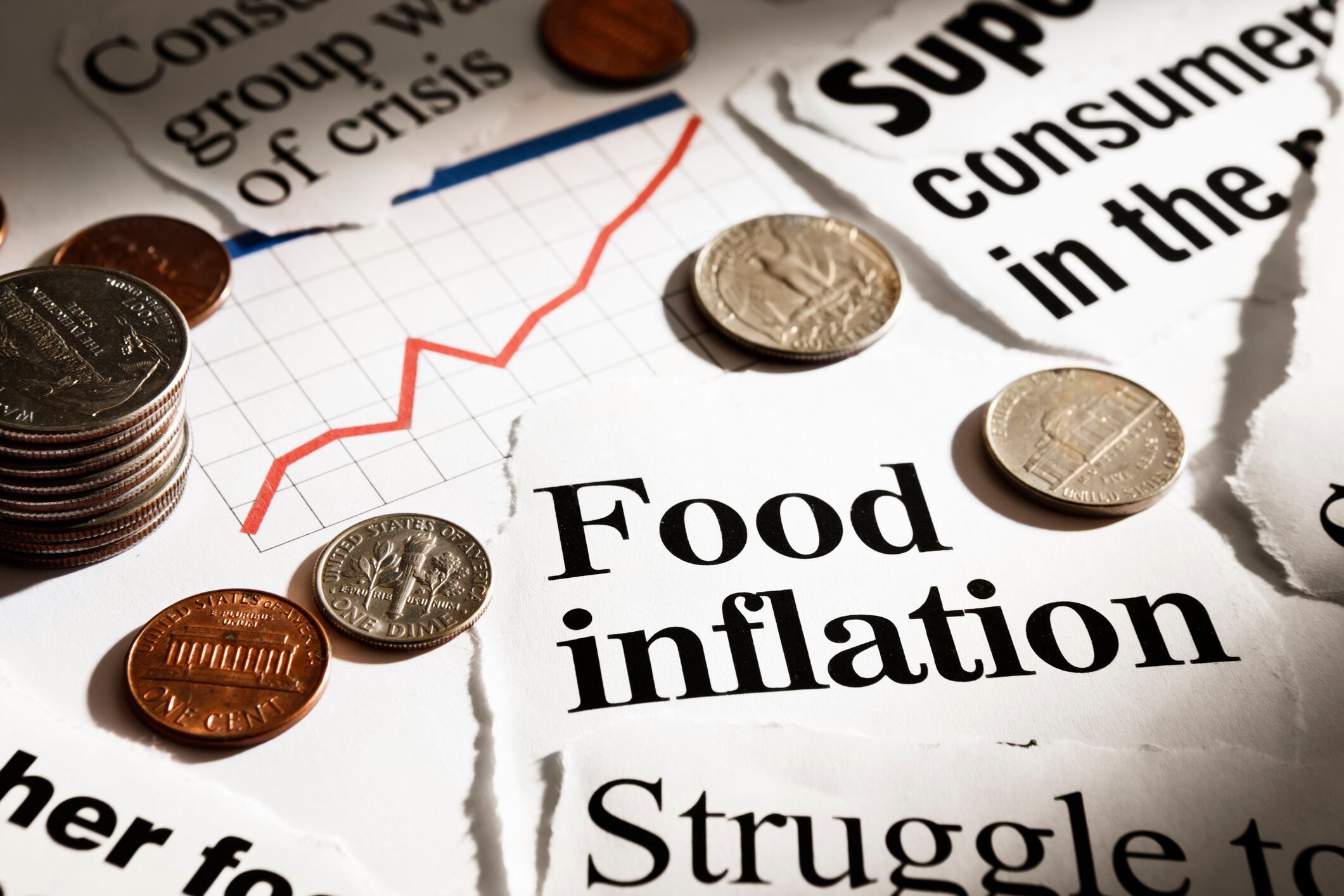The food and drink sector has seen a series of knocks in quick succession, despite this it has proved its resilience with retail shelves generally remaining well stocked.
However, pressure on food and drink manufacturers – which are already operating on wafer thin margins – is not letting up.
Producers continue to face volatile global economic conditions, the risk of climate change and higher costs as a result of new government policies.
It’s therefore unsurprising that new data published today (14 May 2025) from the Food and Drink Federation’s (FDF) shows confidence among food and drink businesses remains persistently low at -43% in the first quarter of 2025.
Price hikes
Analysis from the FDF shared during an economic briefing yesterday showed that food and non-alcoholic drink inflation, which had eased, is inching back upwards.
It reached 3.3% in January and February, and 3% in March. Meanwhile, global commodity prices rose for eight months last year, reaching their highest levels in 19 months.
We have also seen wholesale gas prices climbing steadily, following a dip in 2023 - and it’s expected that these prices will continue to rise in the next six months.
Production costs has increased by an average of 4.5% over a year to March 2025, with over a fifth (22%) of food and drink manufacturers having seen costs increase by 10% or more.
Price wars between retailers
With manufacturing costs higher than retail, producers are absorbing much of the price increases.
“The way you can pass on your costs is to retailers but they are not that willing to accept higher prices,” said Jim Bligh, corporate affairs and comms director for the FDF during the briefing.
The price war between retailers is adding pressure onto manufacturers, with all UK supermarkets having lost some market share over the last five years except discounters (including Aldi and Lidl) and Tesco.
Consumers buying less food
At the same time, we have seen a fall in retail sales volumes, which are 6% lower than 2019, despite growing population numbers. Cost is one likely reason why this figure has dropped, with data showing that the cost of living has been the top concern among consumers for the last three years.
The UK has also seen its volume of exports decline. In 2024, we saw 8.4 billion kilograms exported - this is a 12.6% decline between 2023 and 2024. However, the decline in export volumes is not reflective across Europe, with areas such as Germany, Italy, and in particular the Netherlands, seeing rates of exports increase.
Insolvencies in F&B way above
Against this backdrop, the food and drink manufacturing sector has seen insolvencies rise at a faster pace compared to businesses in Great Britain as well as manufacturing as a whole.
Businesses expect conditions to get worse
A third of businesses (33%), including nearly half (47%) of SMEs said they expect conditions to further deteriorate as they contend with volatile global economic conditions and higher costs driven by new policies. This includes a rise in employee National Insurance Contributions (NIC) and Extended Producer Responsibility (EPR), estimated to cost producers around £410 million and £1.1 billion per year respectively.
The Soft Drinks Industry Levy (SDIL) will add further pressure. The Sugar Tax is currently estimated to cost industry £290 million over the next five years, but given recent talks around lowering the threshold and including dairy-based and alternative drinks, lead economist for the FDF, Liliana Danila, believes this could be an underestimation.
Danila added that the range for food and non-alcoholic drink inflation in 2025 could be anywhere between 3.4% and 4.8%, but she expects it to reach 4.3%.
With energy, ingredients and labour prices continuing to climb, FDF data shows that manufacturers expect their costs to rise by a further 4.8% in the next 12 months.
Automation to plug gaps
More than half (54%) of manufacturers say investment into automation will be a top priority in the coming year, driven by the high cost of labour and the sector’s persistently high unfilled vacancy rate, which is double that of UK manufacturing as a whole.
Meanwhile 13% say they will focus on R&D projects, such as developing healthier products.
However, whilst the data shows companies want to invest, recent government decisions and geopolitical uncertainty are having an impact. As many as 41% of businesses are planning to cancel or scale back their planned investment for the year ahead in areas that would drive growth.
We need better investment and EU ties to be strengthened
To enable businesses to act on their intentions to invest in long-term productivity drivers, the FDF is calling for the Government to send a strong signal that it will support the future health of the industry.
The Federation has said it’s on the right track with its recent trade agreement announcements with India and the US, but there remains additional actions it can take to support national food security and enable food manufacturers to invest in healthy NPD.
This includes continuing to push for a reduction in the current 10% tariffs imposed by the US whilst also strengthening our relationship with our strongest trading partner, the EU.
Bligh added that any deal with the EU will need to take into account the recent progress the UK has made in precision breeding and the EU’s lower mycotoxin levels, with the latter having the potential to cause havoc among Scottish oat farmers.
He also noted that the FDF is keen for England to show similar support to SMEs within exporting as the Welsh and Scottish governments have.
Balwinder Dhoot, director of industry growth and sustainability, agreed investment into the industry as a whole is imperative, and hopes to see growth for the industry marked out as a top priority within the awaited Industrial and Food Strategies.




